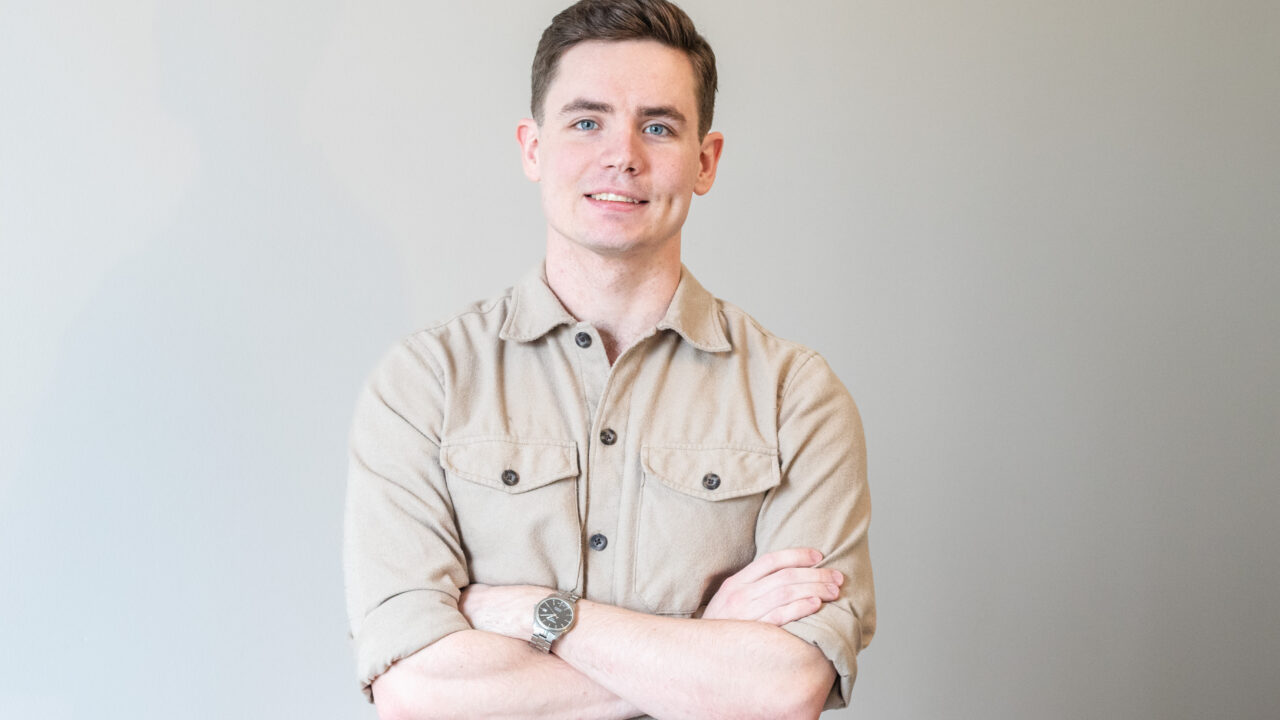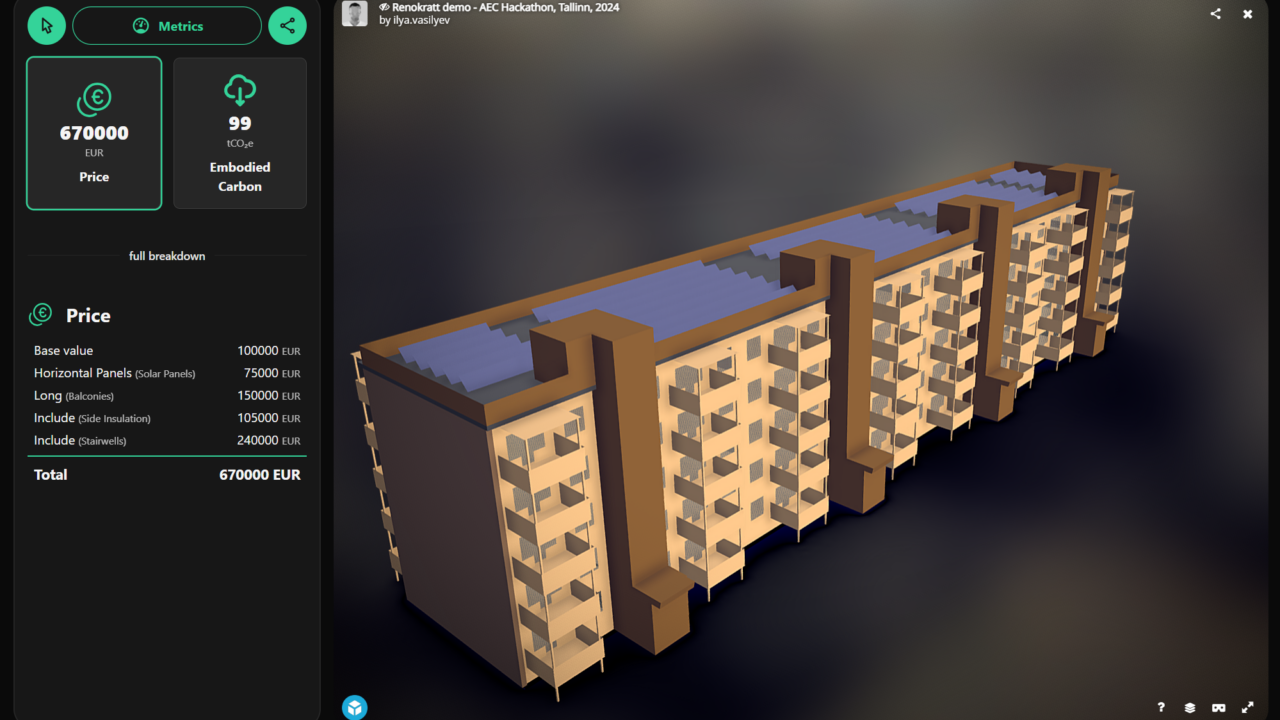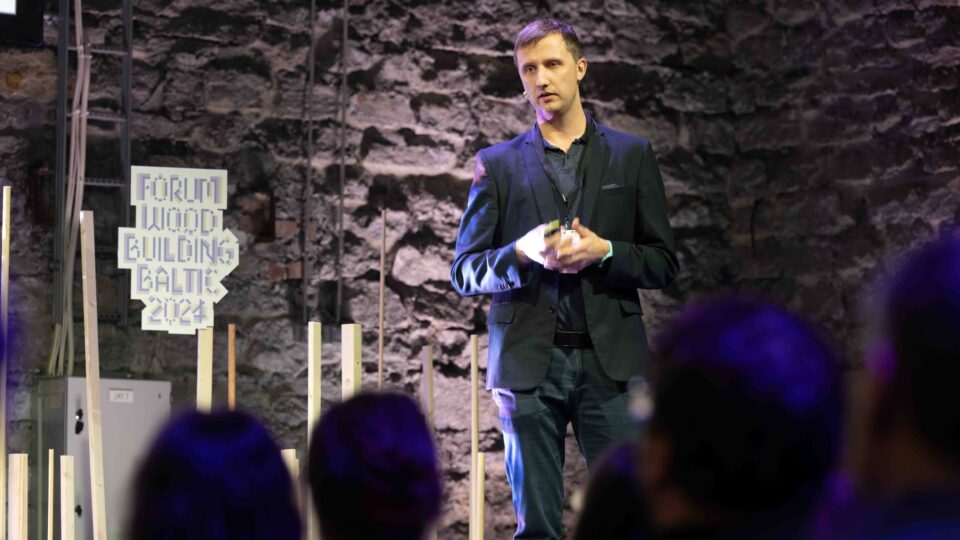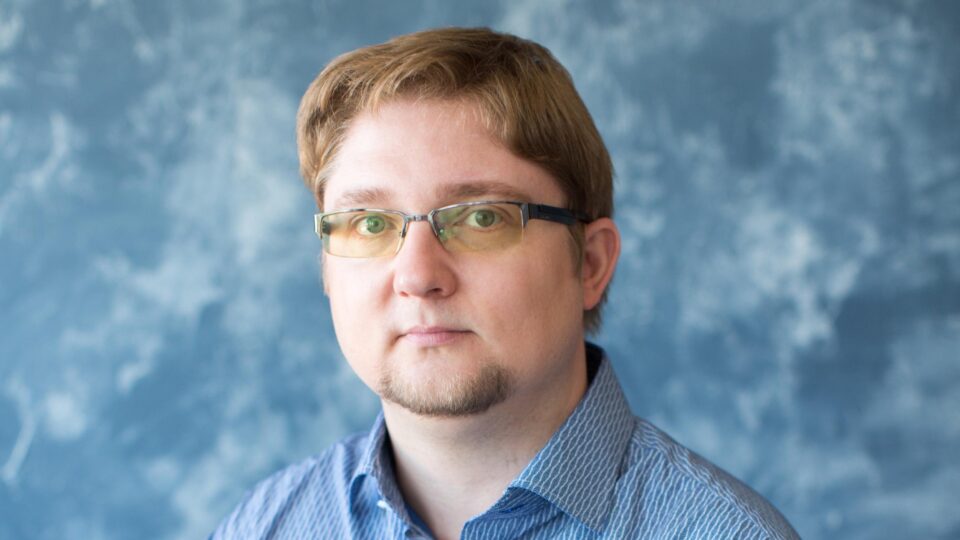The development is led by Joosep Viik – a TalTech alumnus and an expert in the Building lifecycle research group at the Department of Civil engineering and Arhitecture.
The idea behind Renokratt was born in collaboration with Viik’s supervisor and mentor, Professor Ergo Pikas from the TalTech Department of Civil engineering and Arhitecture. The initial impulse came from university research focusing on better management and more efficient organisation of renovation processes. During the research, a clear problem emerged: although there is a lot of information available, it is fragmented, hard to access, and often difficult to understand.
Additionally, the question arose of how to motivate people to renovate. Viik noted that while the research was largely based on the EU Green Deal, the Energy Efficiency Directive, and Estonia’s national strategies – in other words, “top-down” pressure – just as important was the “bottom-up” perspective.
The goal was to communicate the benefits of renovation to people in an intelligent and professional way. “Renovation is an incredibly complex and expensive process, and often, housing associations don’t even know where to start or which solutions to use. As a result, many buildings remain unrenovated, even though the technology and possibilities are actually there. Our goal is to make the process as simple and smooth as possible,” Viik explained.
“Renovation is an incredibly complex and expensive process, and often, housing associations don’t even know where to start or which solutions to use. As a result, many buildings remain unrenovated, even though the technology and possibilities are actually there. Our goal is to make the process as simple and smooth as possible.”
Although the initial prototype of Renokratt was driven by engineering skills and scientific curiosity, Viik and his supervisor, Ergo Pikas, had the market problem clearly in mind from the very beginning. As a result, the development of the solution was approached with a startup perspective – already in the early stages of his thesis, Viik conducted an initial business analysis to assess the potential of the solution.
When Viik presented his idea at the Latitude59 conference last year, it attracted unexpectedly strong interest. The positive feedback confirmed that there is a real market need for such a solution and provided a strong push to continue the development.

The development is led by Joosep Viik – a TalTech alumnus and an expert in the Building Lifecycle Research Group at the Department of Civil Engineering and Architecture. Photo: Private collection
From Hackathon to a Scalable Business
After winning the grand prize at the AEC Hackathon last September with Renokratt, Viik, together with his co-founder Karel Kangro, decided to create a company to further develop the idea. And that’s how Renokratt was born.
Kangro, who had previously worked in technology companies, shared Viik’s enthusiasm for the digitalisation of the construction sector. “We went to the hackathon aiming to refine a more specific business model, but in addition, we found a fantastic team. This six-person team is still active, and together, in our spare time, we continue developing Renokratt.”
The next important step was to clarify the intellectual property situation, as the development of Renokratt is closely tied to research and development at the Institute of Architecture and Construction. To formalise this, Renokratt is entering into a spin-off agreement with TalTech, under which the university will gain a stake in the company.
“It’s a win-win collaboration – we get fantastic research and knowledge to bring to users, and the institute gets a platform to test its developments and collect data.”
A Kratt that makes renovation easy and smart!
Renokratt is an intelligent tool for planning renovations, using data models and artificial intelligence to help users make informed decisions when planning renovations. The platform analyses the energy efficiency of buildings, offers optimal renovation solutions, and helps forecast costs.
What makes the platform special is its ability to use extensive databases to create realistic scenarios based on them. “We use available data sources in Estonia, such as the building registry and land agency data, complement them with university knowledge and user input – and offer the user the opportunity to run through various renovation scenarios, so they can proceed with the best option based on our assessments and explanations,” explained Viik.
While the end-users are mainly housing associations and private owners, Renokratt’s primary users are technical consultants. These specialists lead renovation projects and assist housing associations through the process. “As of February, there are 174 technical consultants in Estonia who have completed the Kredex training, and their task is to help housing associations with the renovation process. Their workload is heavy, information is fragmented, and the work on a single building can take years – we want to support them and others in this process with our tool,” said Viik.
“As of February, there are 174 technical consultants in Estonia who have completed the Kredex training, and their task is to help housing associations with the renovation process. Their workload is heavy, information is fragmented, and the work on a single building can take years – we want to support them and others in this process with our tool.”
In housing associations, there is often a sceptical and uncertain atmosphere, as renovation is a costly and time-consuming process. Viik believes Renokratt can change this mindset because it makes the process more transparent, helps make well-founded choices, and makes the outcome more thought-through and cost-effective.

Renokratt is an intelligent tool for planning renovations that uses data models and artificial intelligence to help users make informed decisions during the planning process. The platform analyzes the energy efficiency of buildings, offers optimal renovation solutions, and helps forecast costs. Photo: Renokratt
Targeting the German market
While Estonia is a good testing ground, Renokratt must look beyond due to the small size of the market. “Our next target is Germany, because there is a huge demand for renovations there, and there are already Estonian companies exporting to that market,” said Viik, outlining future plans.
In addition, the Renokratt team is seeking investors to accelerate development and make the platform market-ready. “Currently, we are working in our spare time and out of enthusiasm, with no salaries being paid. We are part of the Beamline accelerator, which has been a huge support in developing our initial working product, the MVP (minimum viable product), and business plan, but to survive and scale after the accelerator, we need an investor.”
The European Union’s Green Deal goals include a target to have 14,000 renovated buildings in Estonia by 2050. Viik believes that Renokratt can contribute significantly to this goal. “If we can make renovation planning easier and more affordable with our tool, more housing associations will take on renovation projects. This way, we’ll make a big step towards a greener and more energy-efficient future together.”
“If we can make renovation planning easier and more affordable with our tool, more housing associations will take on renovation projects. This way, we’ll make a big step towards a greener and more energy-efficient future together.”
Startup culture may seem glamorous to outsiders, but in reality, it’s hard and selfless work. “The first years are more about personal growth than getting rich quickly. But if the goal is significant enough, it keeps you moving forward. Where you see a problem, come and help. What drives us is a simple desire: we want to do something truly good and useful for Estonia.”
Renokratt is still at the beginning of its journey, but if all goes according to plan, the venture could become a key player in Estonia and Europe’s renovation landscape.




